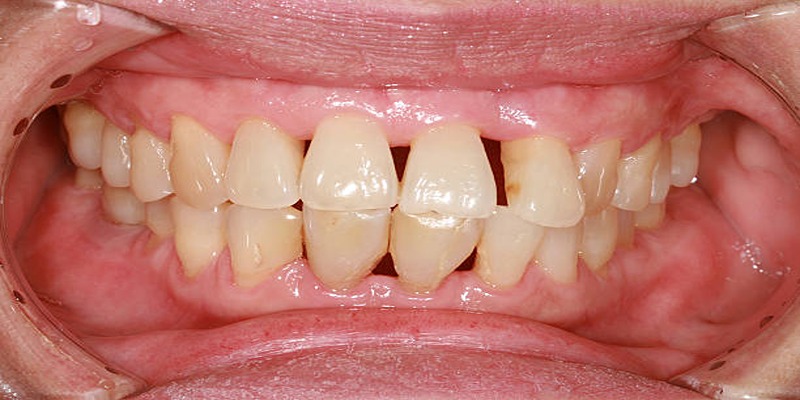You Should Be Aware That Some Medications Might Cause Heartburn
2024-01-25 08:00:00 By Madison Evans
People who suffer from regular heartburn attribute their condition to what they ate or drank. However, the culprit may be hiding in plain sight in your toilet: Heartburn is the most noticeable symptom of gastrointestinal reflux illness, also known as acid reflux, and may be brought on by using certain painkillers and other common drugs. Practically everyone has suffered from heartburn at some point in their lives. Nearly 40% of Americans experience heartburn symptoms at least every month. When stomach acid and perhaps other stomach contents reflux into the esophagus. This lengthy tube delivers food from the mouth to the stomach, resulting in heartburn or acid reflux. The sour taste or burning feeling that might start beneath the breastbone and work its way up the throat is a common symptom of acid reflux.
How Can Medicines Lead To Heartburn?
Both direct irritations of the esophageal lining and relaxation of the lower esophageal sphincter (LES) are mechanisms through which medications may produce heartburn. The stinging or searing feeling is felt in much the same manner. Even while heartburn may be a side effect of many drugs, not everyone who takes a certain drug experiences its effects.
These Seven Drugs May Cause Heartburn
Ibuprofen
Popular ibuprofen drugs such as Motrin and Advil may increase stomach acid production, according to the American College on Gastroenterology. Gastrocenterologist Vivek Kaul, MD, of an University of Rochester Hospital Center in Rochester, Nyc, says acetaminophen (Tylenol) is preferable because it does not increase acid levels. Dr. Kaul says that you may benefit more from a narcotic such Percocet than from taking six Motrin every day.
Drugs That Strengthen Bones

Following the Bone Health but instead Osteoporosis Foundation, bisphosphonates such as alendronate (Fosamax), ibandronate (Boniva), as well as risedronate (Actonel) are also known to cause heartburn in certain patients (BHOF) Possible improvements in gastrointestinal comfort with less-frequent dosing of newer formulations. To provide just one example, the BHOF states that the infusion medicine Reclast may be administered annually.
Drugs For Blood Pressure
Calcium channel blockers and beta-blockers, two types of blood pressure drugs, have been linked to increased heartburn in certain patients by relaxing the lower esophageal sphincter, allowing stomach acid to leak up into the esophagus, as reported by the National Library of Medicine (NLM). The esophagus acts as an opening between the stomach and the throat. If this occurs, talk to your doctor about possible solutions. Assistant professor of internal medicine at Texas A&M University School of Medicine in College Station, Timothy Pfanner, MD, has remarked, "There are several blood pressure drugs out there, and occasionally you can effectively switch."
Aspirin
The world's wonder medicine may help with anything from headaches to heart attacks. Still, according to the National Library of Medicine, it can also increase acid production in the stomach, which can be problematic for those with heartburn. It was initially revealed in 1971 in Nature New Biology that aspirin blocks the production of prostaglandins, which have a protective impact on the digestive system.
Sedatives And Sleeping Pills
Anxiety medications like Valium (diazepam) might have unintended negative side effects, such as heartburn, according to a 2019 paper published in Therapeutic Archive. Not helping is the fact that you're recommended to lie down after taking these medicines, which might worsen acid reflux. Gravity stops working when you recline to keep stomach acid down, making reflux more likely, as the Sleep Foundation reports.
Supplements For Iron
A higher iron intake causes the body to make more RBCs. According to the NLM, iron is a crucial nutrient for your body. Iron deficiency anemia occurs when the body does not get enough iron. Supplemental iron is often used to treat iron-deficiency anemia. Iron tablet supplementation may also increase the risk of developing heartburn. According to the authors of a 2013 article published in ACG Case Reports Journal, iron is thought to damage the mucosa of the GI tract. They also noted that tablet or pill forms of iron supplementation, but not liquid, were associated with gastritis (inflammation of the stomach lining).
Tricyclic Antidepressants

Dr. Kaul suggests that the decreased emptying speed of the stomach while on some older tricyclic antidepressants may contribute to the development of heartburn . Dr. Kaul explained that acid and food particles that remain in the stomach for too long are more likely to reflux back into the esophagus. Modern psychiatric drugs, according to a 2014 review published on Frontline Gastroenterology, have more targeted benefits and less gastrointestinal side effects.
Conclusion
The lower esophageal sphincter (LES), a ring of muscle that regulates the entrance between the esophagus and the stomach, plays a crucial role in the pathophysiology of heartburn. The LES opens and closes under normal conditions to let food enter the stomach and then seals again. Acid from the stomach may back up into the esophagus if the lower esophageal sphincter doesn't contract completely or if it's compromised in some other manner. The acidic contents then irritate the esophageal lining, leading to the pain and discomfort known as heartburn.








